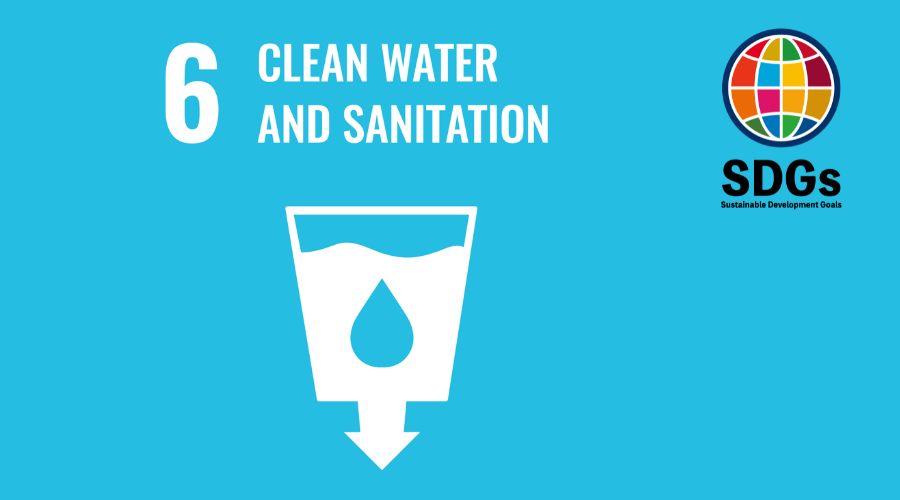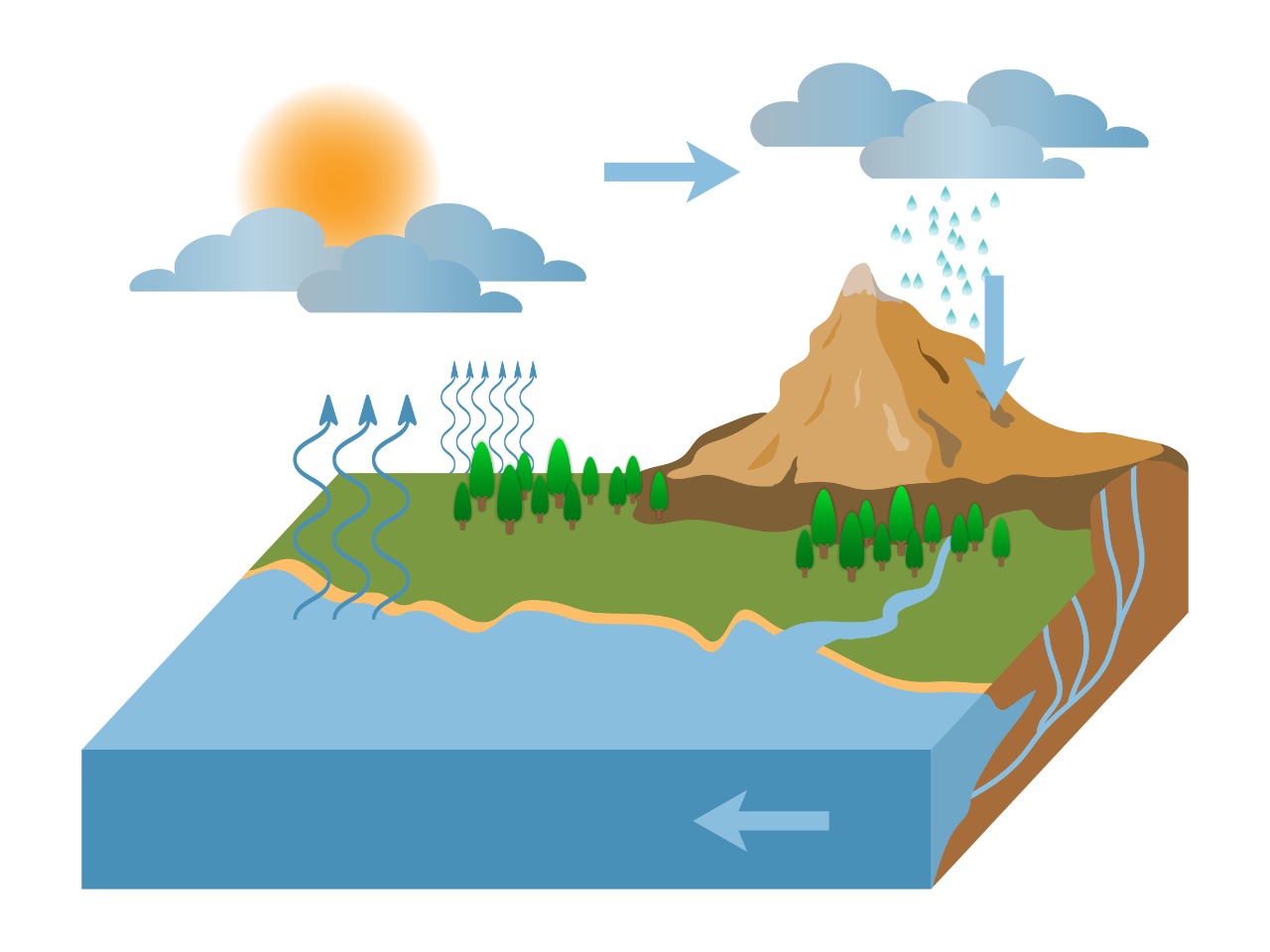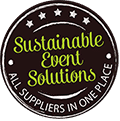Schauen Sie – als Veranstaltungsplanende – sich die Sustainable Development Goals, kurz SDGs, genauer an. Denn mit der Integration der SDGs in Veranstaltungen geschieht ein wichtiger Schritt auf dem Weg zur Nachhaltigkeit. Mit einer bewussten Eventplanung und dank nachhaltiger Praktiken können auch Ihre Veranstaltungen einen wichtigen Beitrag zur Lösung globaler Probleme leisten und zugleich zu einem Vorbild für Nachhaltigkeit werden. Aus diesem Grunde stellen wir Ihnen heute das „SDG 6 – Sauberes Wasser und Sanitäreinrichtungen“ vor.

SDG 6 – Sauberes Wasser und Sanitäreinrichtungen
Das SDG 6 berücksichtigt sowohl den Zugang zu Trinkwasser und Sanitärversorgung als auch den Gewässerschutz. Dazu gehören die
- langfristige Wasserverfügbarkeit,
- effiziente Wassernutzung und
- Förderung eines Wasserressourcenmanagements.
Das bedeutet das SDG 6 für Veranstaltungen
Das sechste Nachhaltigkeitsziel der Agenda 2030 soll auch Sie als Akteur*in in der Veranstaltungswirtschaft dazu anregen, umweltfreundlichere Praktiken im Umgang mit Wasser und sanitären Einrichtungen zu entwickeln. So können wir gemeinsam die Nachhaltigkeitsziele erreichen, auch das Bewusstsein für umweltfreundliches Handeln in unserer Branche stärken.
Sie als Eventplanende und Ihre dienstleistenden Unternehmen können zur Erreichung von SDG 6 beitragen, indem Sie auf Wassereffizienz, umweltfreundliche Sanitärtechnologien und Abfallreduktion setzen.
Schließen Sie außerdem Partnerschaften mit nachhaltigen Organisationen und fördern Sie bewusstseinsbildende Maßnahmen während Ihrer Veranstaltungen. So können auch Sie als Eventplanerin oder -planer das Bewusstsein für sauberes Wasser fördern. Überwachen Sie den Wasserverbrauch bei Ihren Veranstaltungen, setzen Sie auf Ressourceneffizienz und wählen Sie nachhaltige Locations – auch diese Aspekte tragen zur Erreichung des SDG 6 bei.

Diese Sofortmaßnahmen bei Veranstaltungen zahlen auf das SDG 6 ein
Werden Sie aktiv. Das können Sie aktiv tun:
Wassereffizienz priorisieren
Locations sollten den Wasserverbrauch analysieren und effiziente Lösungen einführen. Zum Beispiel:
- wassersparende, Durchfluss hemmende Armaturen,
- Toilettenspülungen und Bewässerungssysteme,
- Regenwasser auffangen und nutzen
- Solartechnologie auf Dächern und überdachten Parkplätze verwenden
Sanitärtechnologien optimieren
Führen Sie als Locationanbieter umweltfreundliche Sanitärlösungen wie wasserlose Urinale oder Trockentoiletten ein und senken Sie so den Wasserverbrauch. Sind Sie Eventplanende, fragen Sie aktiv nach solchen Sanitärtechnologien.
Partnerschaften aufbauen
Kooperationen mit Organisationen, die sich für den Zugang zu sauberem Wasser einsetzen, können das Bewusstsein schärfen und Ressourcen bündeln.
So sorgen z. B. Viva Con Agua, „Water is a human right“ und Africa GreenTec für Brunnen, Wasserversorgung und Sanitäranlagen. Damit helfen sie Millionen Menschen mit ihrem Grund- und Menschenrecht auf sauberes Wasser und sanitäre Versorgung.
Oder fördern Sie Blue Communities, wie beispielsweise die Blue Community Marburg.
Bewusstseinsbildung während Veranstaltungen
Nutzen Sie Infostände, interaktive Displays oder Workshops nutzen, um die Besucher*innen über die Bedeutung von sauberem Wasser und sanitärer Versorgung aufzuklären und zum Wassersparen anzuregen.
Daten sammeln und analysieren
Überwachen Sie den Wasserverbrauch und Abwasserausstoß und identifizieren Sie so Verbesserungspotenziale. Abwasserwärme in Locations können Sie z. B. auch für Wärmepumpen nutzen.
Abfall minimieren
Begrenzen Sie Einwegartikel und führen Sie Recycling- und Kompostierungssysteme ein. Ermutigen Sie Ihre Besucher*innen zur Abfalltrennung und reduzieren Sie so aktiv die Auswirkungen auf Abwasser.
Locations nachhaltig wählen
Bevorzugen Sie als Eventplanende Locations
- mit guter Wasserversorgung und
- angemessenen sanitären Einrichtungen
- mit Regenwassernutzung zur Bewässerung und für die Toilettenspülung.
Virtuelle Wasserverbräuche minimieren
Erhöhen Sie aktiv den Anteil an vegetarischen Produkten und reduzieren Sie Fleischprodukte bei Ihren Veranstaltungen. So können Sie den Wasserfußabdruck erheblich reduzieren.
Neben bereits genannten Maßnahmen zum besseren Umgang mit der kostbaren Ressource Wasser bei Events eignet sich dieses Ziel gut als Ansatz für eine Nachhaltigkeitsstrategie – als Angebot an den Eventkunden oder der veranstaltenden Agentur. Viele SDGs hängen maßgeblich von SDG 6 ab.
Branchenspezifische Wasserproblematiken oder Innovationsstrategien von Unternehmen können als Content, Legacy oder Education Eingang in ein nachhaltiges Event finden.

Veranstaltungen, die mit gutem Beispiel vorangehen
Viele Veranstaltungen setzen sich aktiv für Nachhaltigkeit ein, zum Beispiel:
Coachella Valley Music and Arts Festival (USA)
Das Festival hat Initiativen zur Wassereinsparung implementiert, um den Wasserverbrauch zu reduzieren. Beispielsweise wassersparende Toilettenspülungen. Zudem fördert es die Nutzung von wiederverwendbaren Wasserflaschen und bietet kostenlose Wasserauffüllstationen an.
Glastonbury Festival (UK)
Das Festival hat erfolgreich Maßnahmen zur Abfallreduktion ergriffen. So haben sie beispielsweise Einweg-Plastikflaschen verboten und Recycling- und Kompostierungssysteme eingeführt.
Green Sports Alliance
Diese Organisation fördert nachhaltige Praktiken im Bereich des Sports und von Veranstaltungen. Sie haben dazu beigetragen, die Wassereffizienz in Sportstadien und -arenen zu verbessern, indem sie Bewässerungssysteme optimieren und wassersparende Technologien einführen.
Rock in Rio Festival
Das Festival hat umweltfreundliche Sanitärlösungen wie biologisch abbaubare Toiletten und wasserlose Urinale eingesetzt, um den Wasserverbrauch zu senken und die Abwasserbelastung zu reduzieren.
Copenhagen Fashion Summit
Diese jährliche Veranstaltung, die sich auf Nachhaltigkeit in der Modeindustrie konzentriert, hat Wasserthemen in den Diskussionen integriert. So haben sie mehr Bewusstsein für die Wasserauswirkungen der Modeproduktion geschaffen.
Olympische Spiele Tokyo 2020/2021
Die Veranstalter haben innovative Abwasseraufbereitungsanlagen implementiert, um das Abwasser aus den Austragungsorten zu behandeln und es wieder in den Wasserkreislauf einzuführen. Dies trägt zur Schonung der Wasserressourcen in der Region bei.
Diese Beispiele zeigen, wie Sie als Veranstalter*in durch konkrete Maßnahmen wie Wassereffizienz, Abfallreduktion, umweltfreundliche Sanitärlösungen und bewusstseinsbildende Initiativen das SDG 6 unterstützen können. Solche Best Practices inspirieren und tragen zur Förderung einer nachhaltigeren Veranstaltungskultur bei.

Fazit
Werden nachhaltige Events zum Standard, entsteht durch ihre hohe Reichweite und Vielzahl ein enormes Potenzial, die Welt positiv zu verändern! So werden – auch Ihre? – Veranstaltungen zum Teil der Lösung – seien Sie aktiv dabei.
Weitere Informationen
Die 17 SDGs stellen Ihnen Sabine Böhling, Beraterin, Trainerin und Dozentin für Nachhaltigkeit und CSR und Stefan Lohmann, Experte für Live Entertainment Konzepte und Gründer von Sustainable Event Solutions, vor und übertragen diese auf Veranstaltungen. Diese Reihe ist zuerst auf tw-media, der Tagungswirtschaft, erschienen.
- mehr über die 17 Sustainable Development Goals
- mehr über die 16 Steps Initiative


